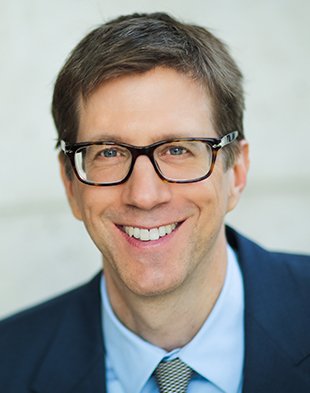Dean Richard A. Bierschbach
Detroit, MI
Wayne State University Law School
University of Michigan
University of Michigan Law School
Richard A. Bierschbach is Dean and Professor of Law at Wayne State University Law School. He became Wayne Law’s 12th dean on August 17, 2017. He previously taught at Yeshiva University’s Benjamin N. Cardozo School of Law in New York for twelve years, where he was vice dean for the 2015-16 academic year.
Dean Bierschbach’s teaching and research interests are in criminal law and procedure, administrative and regulatory law, and corporations (especially corporate, white-collar and regulatory crime). His scholarly work explores the interplay of criminal justice’s institutional and procedural structure with its substantive and regulatory aims. His scholarship has appeared in the Yale Law Journal, the Michigan Law Review, the Virginia Law Review, the University of Pennsylvania Law Review, the Northwestern University Law Review, the Georgetown Law Journal, and the University of Minnesota Law Review, among other journals. For his teaching and mentoring, he twice (2013 and 2015) received the Best Professor Award from Cardozo’s graduating class.
Outside of academia, Dean Bierschbach has had significant experience in appellate litigation and legal and strategic counseling. He clerked for Judge A. Raymond Randolph on the U.S. Court of Appeals for the D.C. Circuit (1997-98) and Justice Sandra Day O’Connor on the U.S. Supreme Court (2000-01). Between those clerkships, he served as a Bristow Fellow in the U.S. Department of Justice’s Office of the Solicitor General (1998-99) and an attorney-advisor in the Justice Department’s Office of Legal Counsel. He also worked in the New York offices of three international law firms—Wilmer, Cutler & Pickering (now WilmerHale) (associate), Gibson, Dunn & Crutcher (of counsel), and Orrick, Herrington & Sutcliffe (special counsel and associated law professor)—as a member of their Supreme Court and appellate litigation practices.
Dean Bierschbach earned his B.A. in history (summa cum laude) from the University of Michigan (1994) and his J.D. from the University of Michigan Law School (1997), where he won the Daniel H. Grady Prize for graduating first in his class and the Henry M. Bates Award, the law school’s highest honor. He is a member of the American Law Institute and a Fellow of the American Bar Foundation. He has held various leadership positions within the American Bar Association, including co-chair of its Criminal Justice Section’s Amicus Practice Committee and vice chair of its Administrative Law Section’s Criminal Process Subcommittee.
